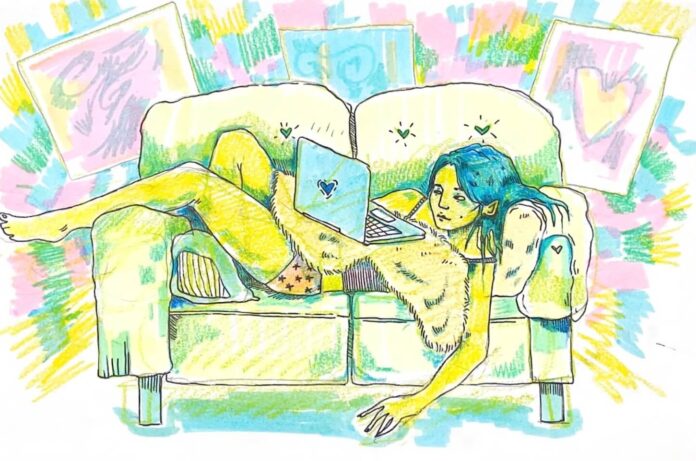If you’re anything like me, your love for reading books started at your elementary school’s annual Scholastic Book Fair. All of my classmates, including myself, anticipated the day that the big metal book shelves would take up the corner of the gym or the library. Every year without fail, I bought the latest installments of the “Dork Diaries” series by Rachel Renée Russell and the “Whatever After” books series by Sarah Mlynowski. I stayed up all night gushing over Nikki’s crush on Brandon in “Dork Diaries.” My love for all things romance has only grown in college after I took a First Year Seminar (FYS) class during my second semester at Oxy called, “Isn’t It Romantic? Lovers, Knights, Sorcerers and Superheroes Through the Ages.” The course revolved around the complexities of the romance genre; from medieval to modern love stories, it taught me new ways to think about romance literature. Learning more about the history of romance and engaging in conversation with classmates about misconceptions of the genre allowed me to reflect on the things I enjoy. I ultimately figured out my guilty pleasure is consuming “bad” romance movies.
I practice what is known to be “ironic consumption,” which means that I consume media that I typically label as “bad” but I still actually enjoy. The genre of romance is considered “boring” and “repetitive” by many — but despite the merciless critiques that romance movies get, I would argue that the ironic consumption of trashy romance movies is good for the soul. Media doesn’t always have to be five-star quality or a tear-jerking, heartbreaking Oscar-worthy film — sometimes, the sole purpose is just to entertain the viewers. That’s why ironic consumption is so great: you are able to consume media that can be questionable but enjoyable.
My favorite kinds of “bad” romance movies are easily found on Netflix. The first thing that catches your eye is the title, then the front cover with a high quality picture of a couple in love. C’mon, who doesn’t love a good Christmas romance with the same plot as any other holiday romance movie? The most typical stories — from the small town fling to the classmates that pretend to date and (spoiler alert) end up falling in love — are all movie plots that I consume. Are they trashy and repetitive? Yes, but I feel a sense of comfort when I watch romance movies; I like crying, gushing over my one true pairing (OTP), seeing them finally kiss and feeling anxious about what’s to come next for their romance. I feel a sense of relief because I can almost always expect a happily ever after — instead of worrying about how the story will end, I can focus on the character development and how they grow from their experiences.
Romance movies follow a reliable recipe that keeps us hooked: a predictable happily ever after, a love story and a common desire to fall in love. These stories, good or bad, not only bring comfort to the viewer but they also bring people together. My best friend and I have a tradition where we watch Netflix romance movies once a month, not for the romance plot, but for the cringe-worthy moments. During our first year, we watched the movie “He’s All That” which I would argue is one of the worst romance movies out there — in a good way. The plot is a typical high school drama where the popular girl at school gives the “nerd” a makeover and they end up falling in love. The storyline has been seen before many times, as the movie is actually a remake of “She’s All That.” Stereotypical but familiar films like these made my best friend and I realize that we love ironically consuming movies that are so bad we can laugh at them. These activities promote togetherness, allowing us to connect with others over trivial and silly yet enjoyable stories.
Romance movies also allow us to confront our feelings of heartbreak, love and loss, as watching others deal with a mixture of feelings helps us relate. We are able to analyze how the protagonists solved their problems so that we can further develop our relationships. Watching teenagers in movies go through embarrassing and uncomfortable stages of life is comforting for young viewers since these characters are representative of us in similar awkward phases. These movies serve as entertainment, relatable models and sometimes as cautionary tales. But overall, these portrayals allow us to get in touch with the way we personally experience romance.
So, yes maybe these movies are clichéd or just bad, but they’re so fun to consume! Give romantic movies an opportunity to show you how good they can be. Think of them as ways to bring you comfort, connect you with more people and help you reflect on your relationships. You can ironically consume media and just enjoy it — even if it’s bad.
BRB, my Netflix suggestions are begging me to watch a new cliché romance movie.
Contact Perla Duran at pduran@oxy.edu.
![]()































